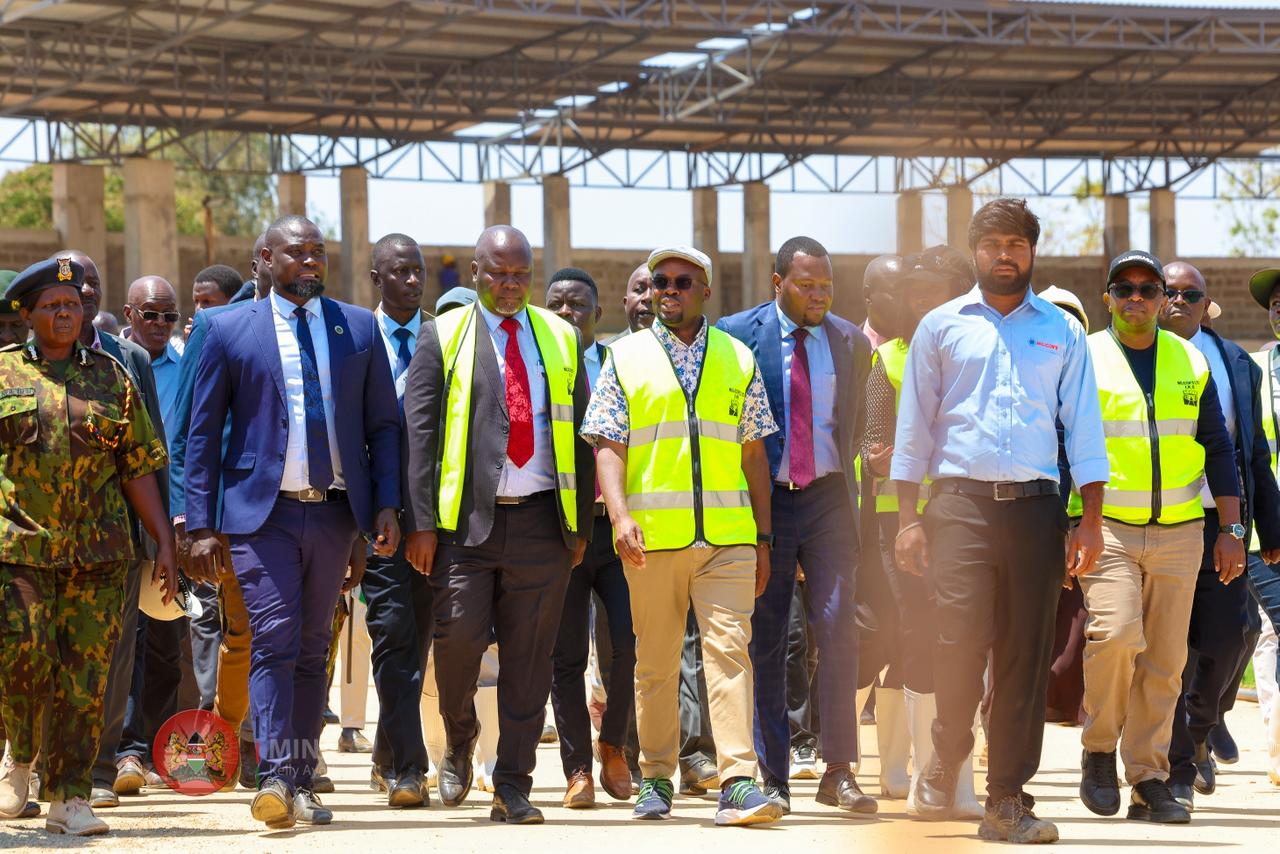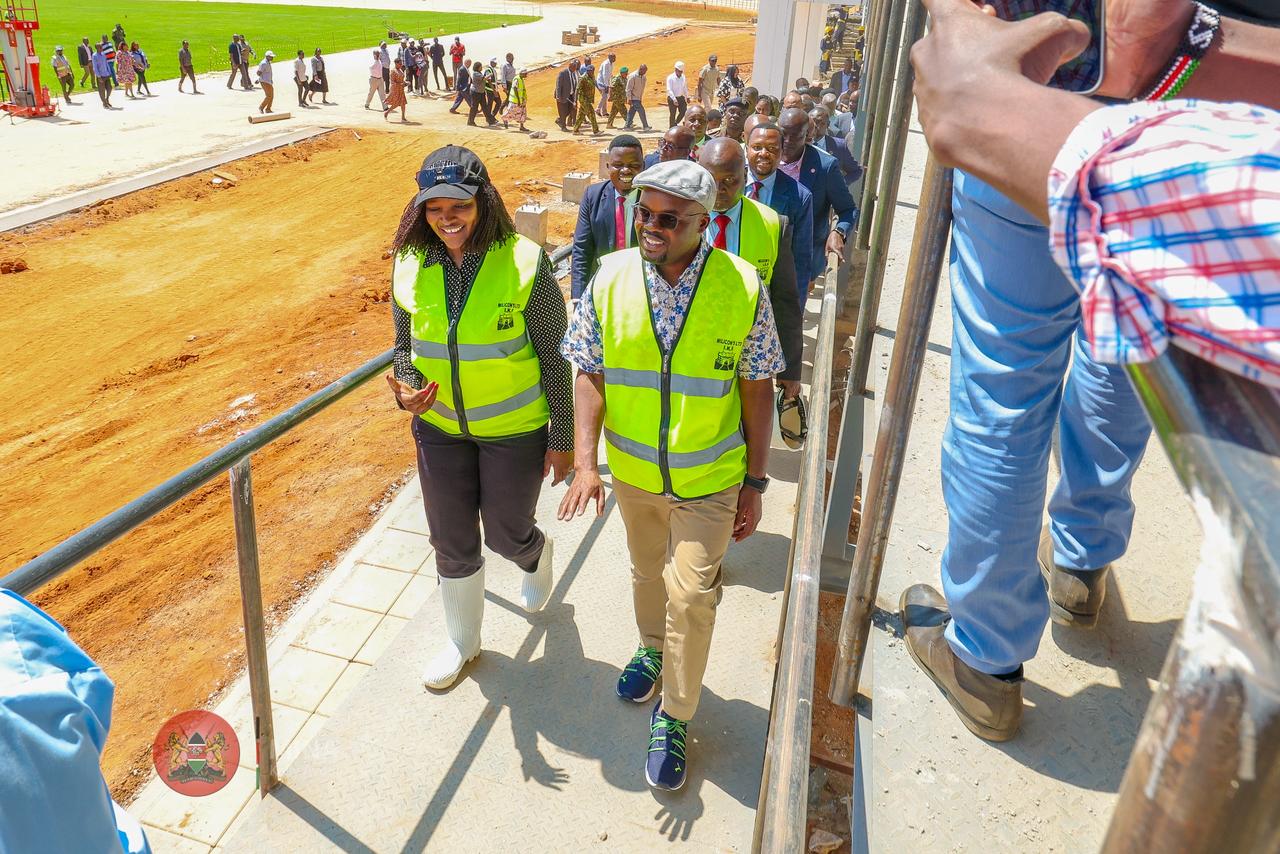
Kitui County has recorded significant
progress in implementing flagship government programmes that are transforming
lives and driving sustainable development across the region, County
Commissioner Kipchumba Rutto has said.
In a statement detailing the county’s
latest achievements, Rutto noted that
the progress reflects the success of the Bottom-Up Economic Transformation
Agenda (BETA), which has been designed to improve livelihoods through targeted
investments in social protection, health, education, agriculture, and
environmental conservation.
He said the data shows that thousands of
residents across Kitui are directly benefiting from government programmes that
are reshaping the county’s social and economic landscape.
“Kitui continues to register commendable
progress in flagship government programmes that are transforming lives and
driving inclusive growth. These results show that the government’s
people-centered policies are delivering tangible benefits at the
grassroots,” Rutto stated.
At the heart of this transformation is the
Inua Jamii Cash Transfer Programme, which now supports 76,559 beneficiaries in
Kitui County. The initiative targets older persons, people with disabilities,
and orphans and vulnerable children.
According to the County Commissioner, the
programme has not only provided critical relief to vulnerable groups but also
stimulated local economic activity by increasing household purchasing power.
Many small traders in rural markets now
rely on this flow of cash to keep their businesses running, creating a ripple
effect that supports the broader economy.
“Beyond providing relief, the cash transfers have enhanced household purchasing power and boosted financial inclusion in rural areas. It is a lifeline that has brought dignity and stability to thousands of vulnerable families,” he added.
The county has also made remarkable strides
in environmental conservation, a pillar of the national climate agenda.
Under the National Tree Growing Programme,
Kitui has planted 2,757,435 trees, contributing significantly to the
government’s plan to grow 15 billion trees by 2032.
Rutto said the exercise has been
community-driven, with schools, local groups, and public institutions taking a
leading role.
The trees, he explained, are not only a
tool for carbon sequestration but also a source of sustainable livelihoods, as
many farmers are now venturing into fruit tree planting and agroforestry.
“The people of Kitui have embraced the call
to grow trees. This is a demonstration of local ownership of the national
climate agenda,” he said, noting that the county’s efforts are crucial in
mitigating the effects of climate change and land degradation in the semi-arid
region.

In education, Kitui County has sustained a
strong performance, maintaining a 97.7 percent transition rate from primary to
secondary school.
Rutto attributed this to close coordination
among teachers, parents, and administrators as well as government support
programmes such as free day secondary education and school feeding initiatives.
“Education remains a cornerstone of social
transformation. We are ensuring that every child stays in school, continues
learning, and has a chance at a better future,” he said.
The high transition rate, he added, places
Kitui among counties contributing significantly to Kenya’s national goal of
achieving 100 percent transition and universal access to education.
The health sector has also registered
commendable gains, particularly through the rollout of the Social Health
Authority (SHA), which seeks to achieve Universal Health Coverage (UHC). So
far, 192,933 residents of Kitui have been registered under the programme.
Rutto said the milestone demonstrates
growing public confidence in the government’s efforts to make healthcare
accessible and affordable to all Kenyans, regardless of income or location.
“The
SHA rollout is a major milestone in improving access to healthcare. Our goal is
that no one should be denied medical attention because of financial barriers,”
he noted.
The programme aims to ensure that all
Kenyans can access essential health services without falling into poverty due
to medical costs.
Agriculture, the economic backbone of Kitui
County, is undergoing significant modernization.
Through data-driven planning and targeted farmer support, the government has profiled 235,392 farmers, enabling better service delivery and precise interventions.

Rutto said this approach allows
agricultural officers to tailor support based on actual farmer needs and
climatic conditions.
To further enhance productivity, the
government has distributed 41,392 bags of fertilizer across the county,
promoting climate-smart agriculture that is resilient to the region’s erratic
rainfall patterns.
“By using data to guide agricultural
planning, we are ensuring that government support reaches the right farmers at
the right time. This approach is helping to increase productivity and improve
household incomes,” he stated.
Rutto emphasized that the progress being
witnessed in Kitui is the result of strong collaboration between the national
and county governments, development partners, and local communities.
He said the integrated approach has created
synergy across sectors, ensuring that the benefits of government programmes
reach the grassroots effectively.
“The
story of Kitui is one of shared growth and resilience. By empowering
communities and focusing on people-centered programmes, we are building a
foundation for long-term prosperity,” he observed.
He added that the success stories emerging
from Kitui demonstrate how national policies are translating into real change
on the ground.
Through social protection, environmental
stewardship, education, healthcare, and agricultural reforms, lives are being
transformed and opportunities created for thousands of residents.
Rutto reaffirmed the government’s
commitment to sustaining this momentum and ensuring that no one is left behind
in the implementation of BETA programmes.
The County Commissioner expressed optimism
that with continued collaboration and citizen participation, Kitui will
continue to serve as a model for inclusive and sustainable development.
“From social protection and education to
health, agriculture, and environmental management, we are witnessing a powerful
story of transformation unfolding in our county. The progress demonstrates that
when people and government work together, policy becomes impact and hope
becomes reality,” he said.












